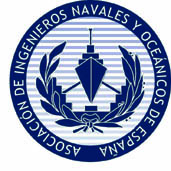Área de Competencia: Técnica y tecnología
Miembros de la comisión: Javier Pamies, Juan Perez Prat, Álvaro García, Wenceslao Gonzalez, Juan Vasco
Se ha recopilado información y algunos de los miembros hicieron seguimiento a varios eventos:
Javier Pamies – Conferencia sobre buques autónomos 18 y 19 de Enero 2022 – The Maritime Autonomous Systems Regulatory Working Group Conference 2022.
Alvaro García añade el documento MASS UK Industry conduct Principles and code of practice.
Juan Pérez Prat realiza resumen de los acuerdos tomados en la sesión 105 del MSC de IMO 20/29 abril, en remoto, sobre MASS, difundidos por DNV:
- TECHNICAL REGULATORY NEWS No. 12/2022 – STATUTORY IMO MARITIME SAFETY COMMITTEE (MSC 105)
- Maritime autonomous surface ships (MASS) The prospect of autonomous ships operating internationally with little or no human intervention has revealed the need for a regulatory framework for such ships, including their interaction and co-existence with conventional manned ships. The current regulatory framework generally assumes manning and human intervention.
- MSC 105 agreed to develop a non-mandatory, goal-based code for MASS, potentially entering into force on 1 January 2028 as a mandatory code through SOLAS and other IMO instruments, as relevant, upon experience with its application.
- A roadmap for the development work was approved. The roadmap includes the consideration of key principles, purpose and objectives for the new goal-based code, the consideration of its scope and structure, and the consideration of a common understanding of MASS terminology. The roadmap also includes the consideration of how common challenges that have been identified across several IMO instruments could be addressed, for example the need to clarify the role and responsibility of the “master” for circumstances where shore personnel might control the ship, or the functional requirements of a remote-control centre.
- A correspondence group will, until MSC 107 in June 2023, advance the initial steps of the development of a non-mandatory, goal-based code for MASS, noting that the overall discussions indicate deviating views on how to effectively address automation of ship functions.
- A joint MASS working group for the IMO’s Maritime Safety Committee (MSC), Legal Committee (LEG) and Facilitation Committee (FAL) will be established to address common high-priority issues that were identified by the regulatory scoping exercises conducted by the three committees.
- The first meeting of the MSC/LEG/FAL working group will be held from 6 to 8 September 2022, subject to concurrent approval by FAL 46 (May 2022) and Council 127 (July 2022).
- Buques autónomos: Retos y potencial
La última Jornada Técnica del año 2022, tuvo lugar el pasado 30 de noviembre, organizada por la Comisión del buque autónomo.
Jorge Calvar, vicepresidente de la Asociación de Ingenieros Navales y Oceánicos de España, agradeció las palabras de bienvenida del presidente de la Real Academia de la Ingeniería, D. Antonio Colino y seguidamente y “haciendo una reflexión sobre lo que significan los barcos autónomos”, indicó que “ese sistema de sistemas tiene ahora una estructura muy diferente a la tradicional. Presenta una arquitectura digital que cambia la fisionomía tradicional del barco que se enseña en las Escuelas”. “Automatizar significa que la intervención humana debe reducirse, sin embargo, son las personas las que deben estar detrás de todas las tomas de decisiones a la hora de crear un sistema autónomo”.
Seguidamente D. Javier Pamiés Durá, como moderador de la jornada, tomó la palabra, matizando que “los buques ya son autónomos” y que de lo que se viene a hablar es de buques y embarcaciones no tripuladas, que tienen una autonomía diferente”.
Los ponentes de la Jornada Técnica fueron:
-
- Jaime Pancorbo, director técnico de la División Naval y Offshore en España y Portugal de Bureau Veritas. Los 4 niveles básicos del buque autónomo. . (Descargar presentación aquí)
- Dª Rocío Malpartida Gallardo, Ing. Sistemas Experiencia en proyectos de embarcaciones no tripuladas. (Puedes descargar su presentación aquí).
- Manuel Bethencourt Núñez, responsable de Vehículos Marinos no Tripulados de la Universidad de Cádiz Experiencia adquirida en proyectos. (Puedes descargar su presentación aquí)
- Carlos Barrera, jefe de la Unidad de Vehículos Autónomos de PLOCAN. Experiencia adquirida en proyectos (Puedes descargar su presentación aquí).

